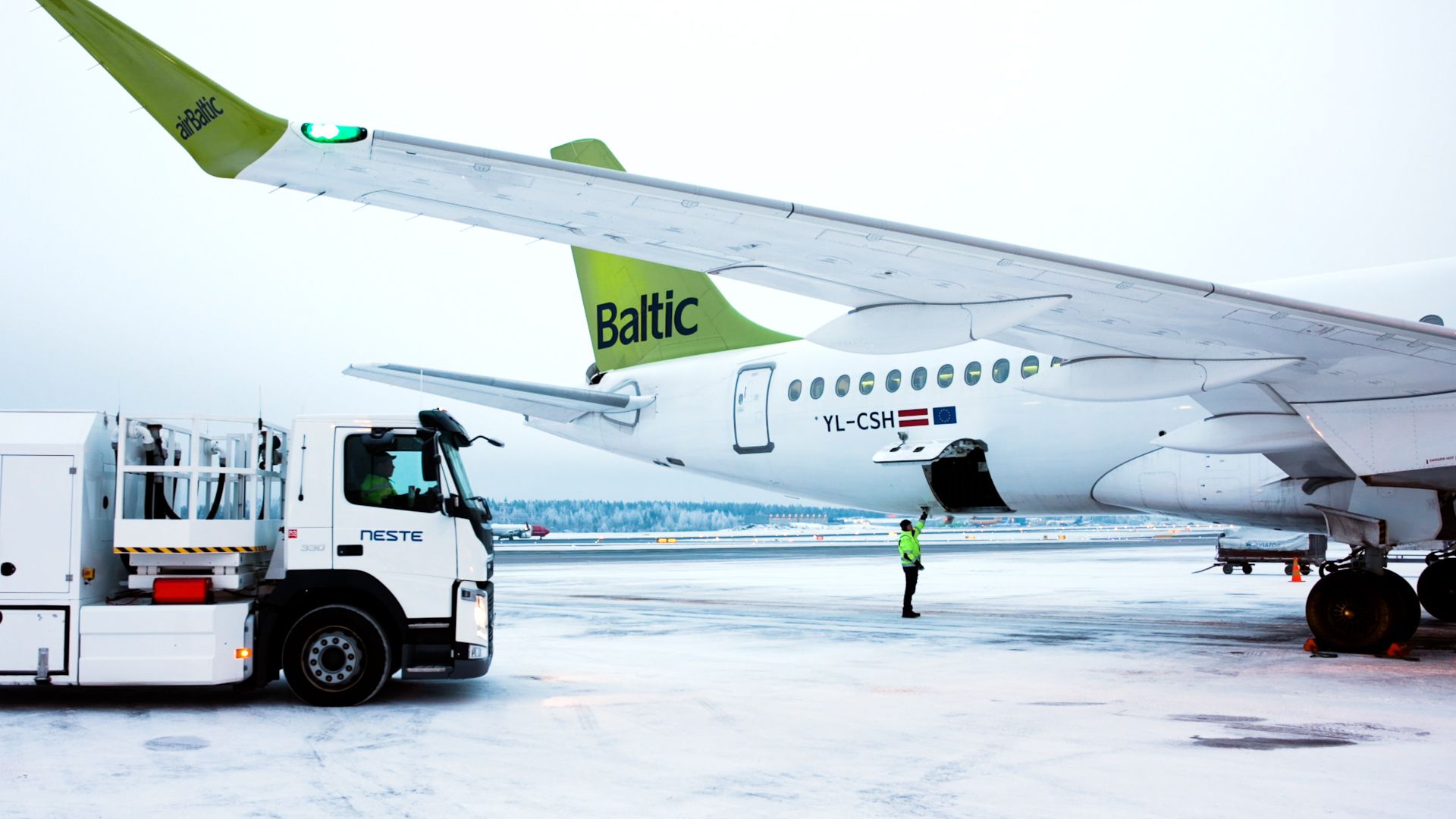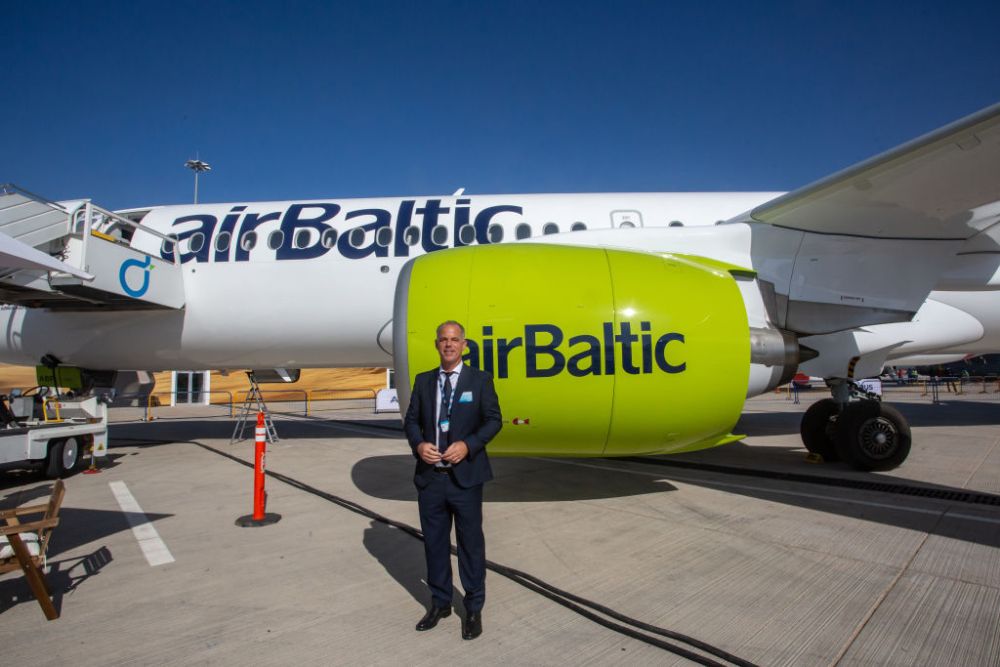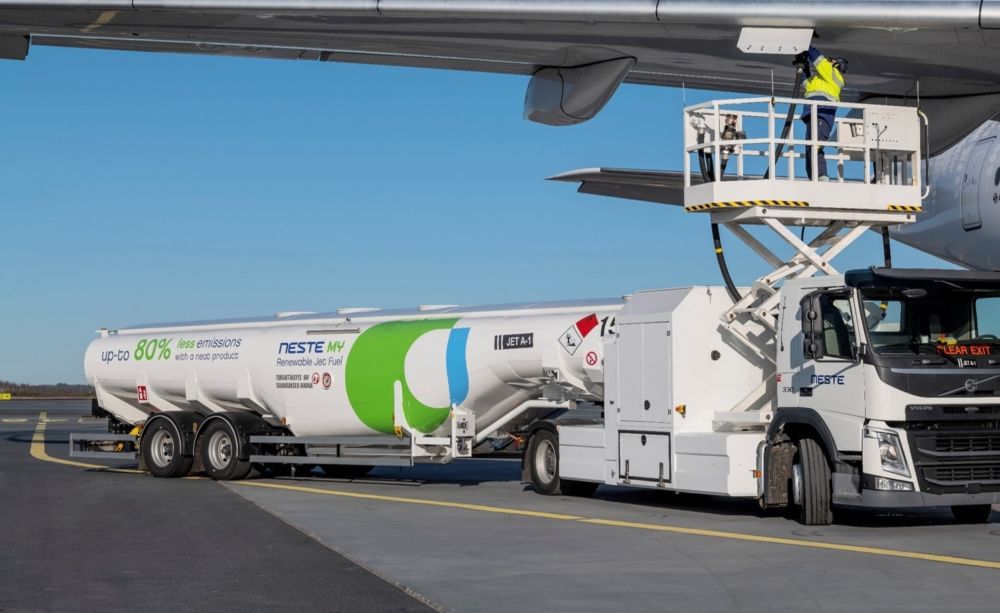Latvia's national airline, airBaltic, announced Tuesday that 2021 saw a significant increase in the carrier's use of sustainable aviation fuel (SAF). Just before the turn of the year, the airline operated a flight powered to 37% by SAF from Neste - its highest proportion to date.
It's that time of the year where everyone is looking back on the twelve months that passed and assessing what went right and what could have been done better. For aviation, 2021 remained tumultuous, albeit not as crippled by doom and gloom as 2020. However, one area where many carriers have made progress is in their work towards more sustainable operations.
Becoming one of Europe's sustainable airlines
In 2021, A220 specialist airBaltic increased its use of sustainable aviation fuel by 20% compared to 2020 levels. The Latvian flag carrier has partnered with Finnish SAF provider Neste and other fuel providers across airBaltic's network.
On December 28th, the airline operated flight BT302 from Helsinki to Riga on a blend of 37% of Neste MY Sustainable Aviation Fuel and 63% of conventional fossil jet fuel. This was the highest proportion of SAF powering an airBaltic flight to date.
"Our vision sees us becoming a sustainable carrier in the EU aviation market. At airBaltic, we believe that SAF will play a crucial role in ensuring the future of the aviation industry and help everyone involved to decrease their impact on the environment. Our use of SAF will increase further in 2022 and beyond,” said Martin Gauss, airBaltic CEO and A220 pilot, in a statement on Tuesday.
Stay informed: Sign up for our daily and weekly aviation news digests.
Neste's sustainable aviation fuel
Commercial planes are currently certified for a blend of up to 50% SAF. However, even if they would be willing to pay the current premium of between three and four times the price of conventional jet fuel, supply remains elusive at best. With investment, awareness, and corporate clients bound by their own sustainability targets driving demand, this is changing.
Neste's sustainable aviation fuel is made from 100% waste and residues, mainly cooking oil and animal fats. These are so-called second-generation biofuels and can reduce CO2 emissions by 80% over their lifecycle compared to fossil-based fuels.
While they are still preferable to their conventional counterparts, some would argue that we need to be careful investing too much into biofuels and losing sight of synthetic kerosene, commonly referred to as e-fuel.
Global rollout picking up pace
Over the past year, Neste has announced several new agreements and collaborations. In October this year, it was the first to introduce SAF at Gatwick Airport in cooperation with easyJet. In June, the company signed an agreement with the Boston Consulting Group for all of the latter's employees' flights with SAS and Finnair to be powered by SAF.
The company also partners with All Nippon Airways, Malaysia Airlines, DHL Express, and ATR, as well as several airports including San Franciso, Amsterdam Schiphol, and Geneva, just to name a few.
Have you knowingly been on a flight powered by SAF? Would it make you choose one airline over another if you knew they were using a higher percentage of sustainable fuel? Leave a comment below and let us know.



